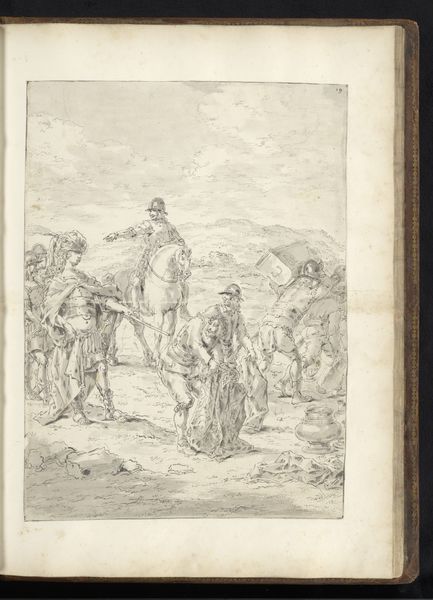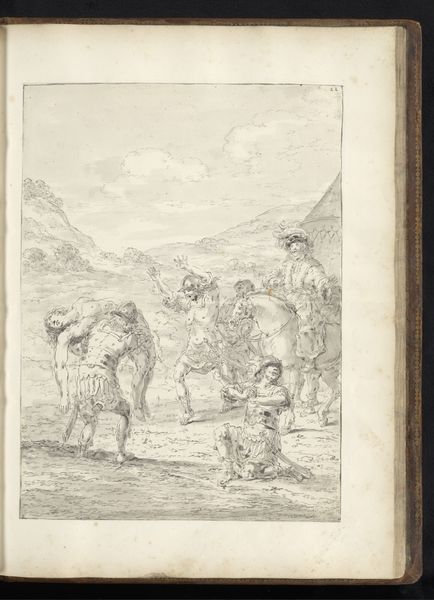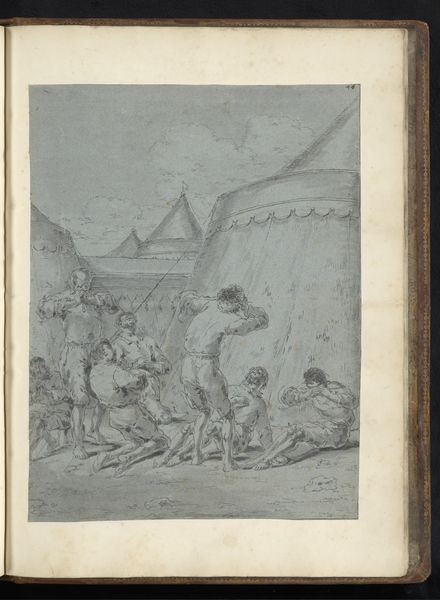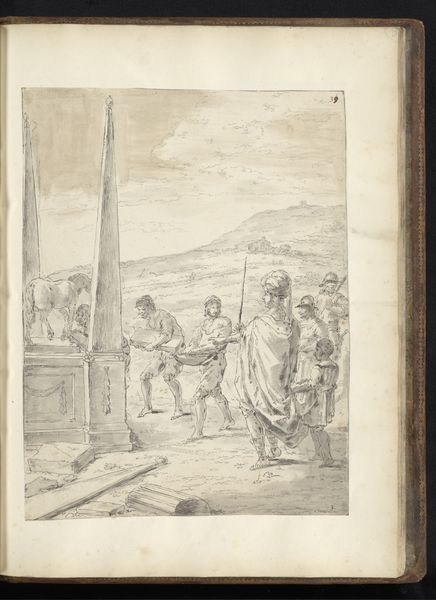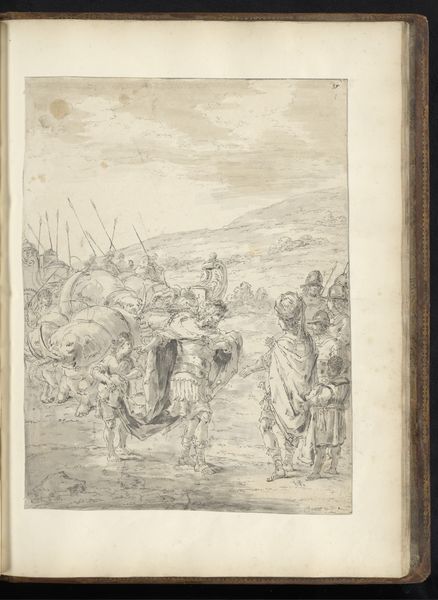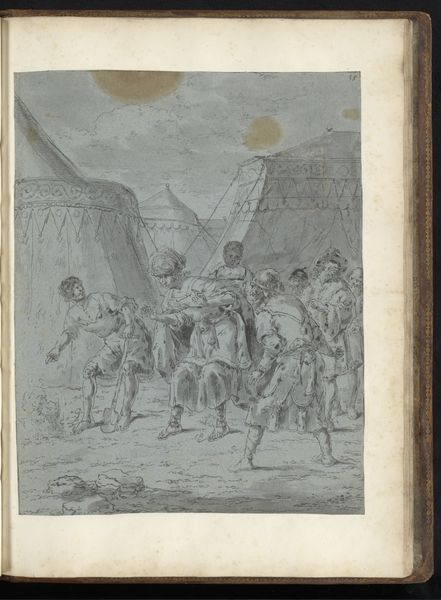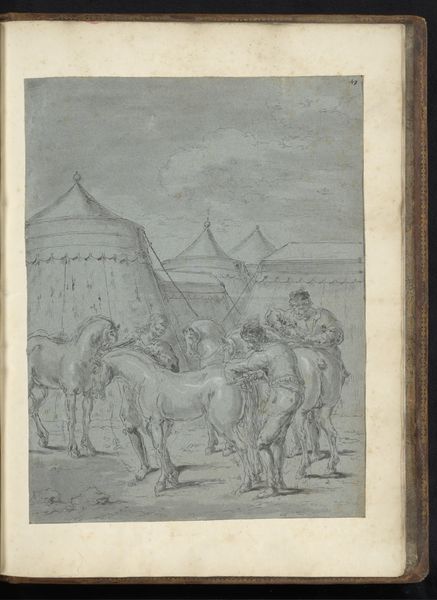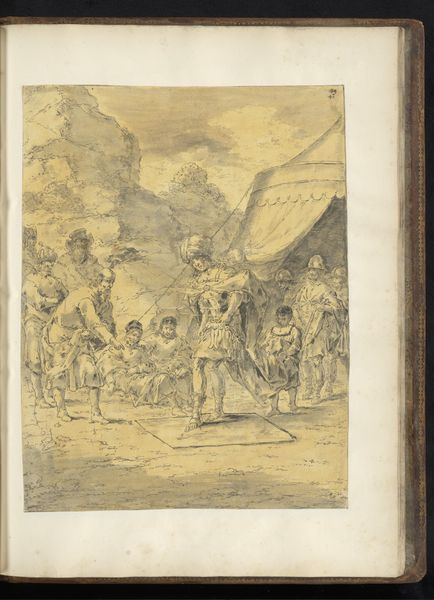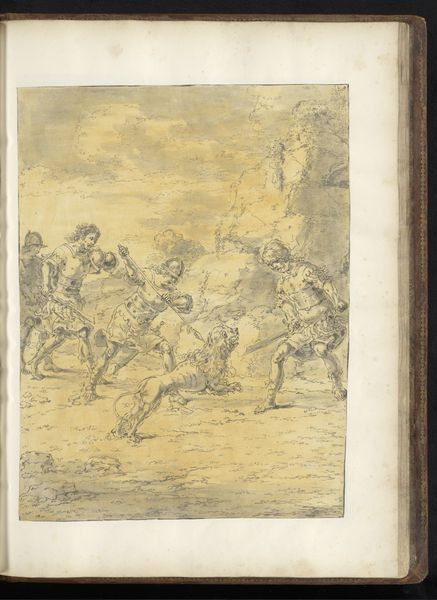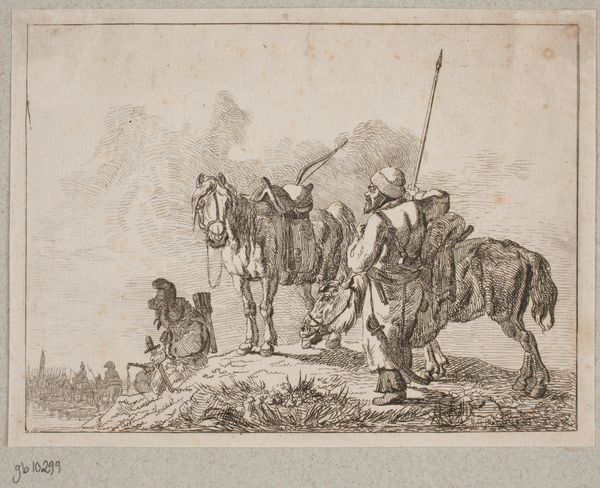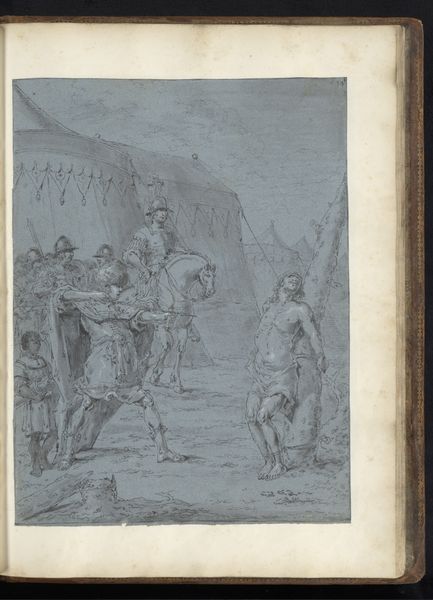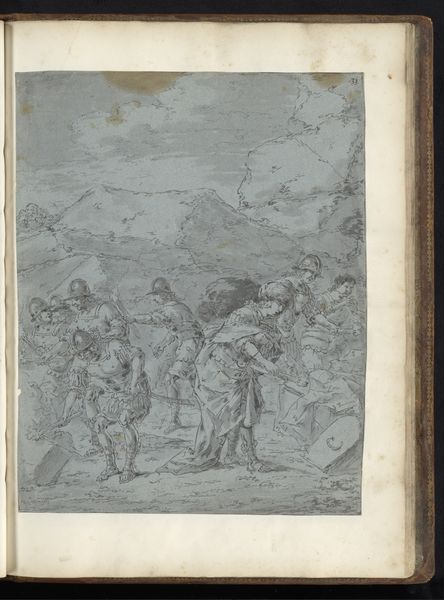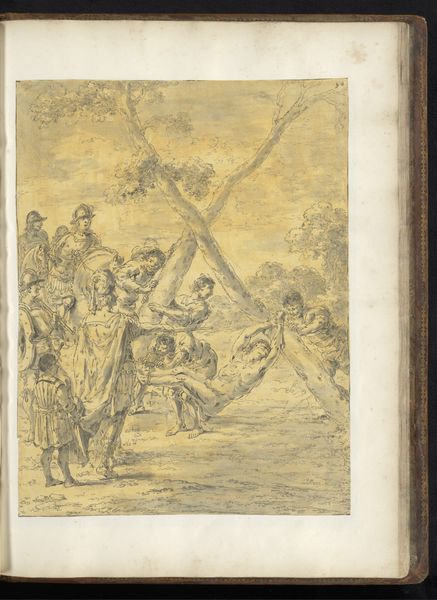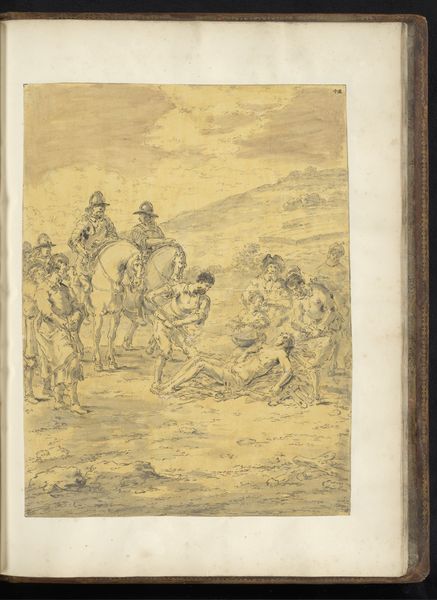
Alexander de Grote weigert het water te drinken dat zijn soldaten hem aanbieden c. 1655 - 1665
0:00
0:00
leonaertbramer
Rijksmuseum
drawing, paper, ink, pen
#
portrait
#
drawing
#
narrative-art
#
baroque
#
ink painting
#
landscape
#
paper
#
ink
#
pen
#
watercolour illustration
#
history-painting
Dimensions: height 413 mm, width 313 mm
Copyright: Rijks Museum: Open Domain
Curator: Oh, I'm immediately drawn to the light in this drawing. It feels almost… arid? Editor: Precisely. What we're looking at is a drawing attributed to Leonaert Bramer, titled "Alexander the Great Refusing the Water Offered to Him by His Soldiers," dating back to sometime between 1655 and 1665. Curator: Bramer certainly captures the legend. Alexander refusing refreshment out of solidarity—that gesture… it’s powerful. I almost feel thirsty just looking at it, and I think it is amazing he accomplished this mood through watercolor and pen work! Editor: Yes, Bramer was quite adept at ink and pen. It's striking how he uses a fairly limited palette of muted yellows and browns to portray not just a scene, but an ethical dilemma, in the leader-follower dynamic. What does it mean for a leader to show such extreme empathy, to deny themselves comfort in order to share the burden of their soldiers? It touches on the power and performance of leadership itself. Curator: Absolutely. And beyond the grand gesture, there's a humbleness in the execution itself, isn't there? It’s just ink on paper. I think it's intriguing that something created with such simple materials could carry so much emotional weight. The landscape even seems to mirror the austerity of Alexander's decision – bare, unforgiving. Editor: The landscape does reinforce that sense of shared hardship, especially because the choice to use simple ink and wash as medium also invites reflections on issues of power, patronage, and artistic production. Who was this drawing made for? How did Bramer intend it to circulate? The narrative itself, derived from ancient sources, speaks to a fascination with moral strength and leadership ideals, doesn’t it? But at the time, how exclusive would its viewers have been, and how would they relate that message to themselves? Curator: It all comes back to the power of art, really, doesn't it? That something created so long ago, with such simple means, can still make us question, think, and feel so strongly today. Editor: It does—reminding us that these historical vignettes can also be tools for contemporary ethical self-reflection. It is very generous and egalitarian of Bramer.
Comments
No comments
Be the first to comment and join the conversation on the ultimate creative platform.
